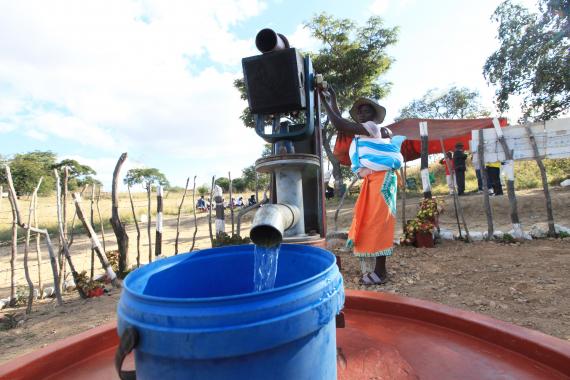‘Privatising Harare water supply can boost service delivery’
Some analysts have supported Government’s proposal to privatise water supply in Harare, saying this could significantly improve service delivery, infrastructure and public health, aligning with global goals for sustainable development.
Last week, the Minister of Local Government and Public Works Daniel Garwe said the proposal to privatise water supply stemmed from the “failure” of local authorities to deliver on their mandate.
Minister Garwe said the Government had already received eight expressions of interest for the privatisation of Harare’s water supply, including five from domestic firms and three from international entities.
Residents and businesses in Harare have been severely impacted by chronic water shortages and poor quality, leading to disruptions in daily life, increased health risks and significant economic losses for businesses.
Economic analyst Tinevimbo Shava said private sector involvement could address long-standing inefficiencies.
“Private companies often bring in investment, technology, and operational expertise,” Mr Shava said. “This can lead to better service delivery and a more reliable water supply for Harare’s residents.”
Mr Namatai Maeresera, another economic analyst, noted the potential for significant infrastructure development as a key benefit of privatising Harare’s water supply.
“Privatisation could modernise Harare’s aging water systems,” he said. “This would reduce water shortages and improve quality, benefiting both households and businesses.”
Privatisation of water services has shown positive outcomes in several regions worldwide.
In South Africa, a 30-year concession with Siza Water Company in the Dolphin Coast region has been a success story.
The partnership led to improved billing systems, increased revenue collection, and expanded access to water services for underserved communities.
The project’s success was attributed to a clear regulatory framework and a focus on community engagement.
In Paris, France, water services were privatised in the 1980s, leading to significant improvements in efficiency and service quality.
By 2010, the city transitioned to a public-private partnership model, retaining the expertise of private operators while ensuring public accountability.
The hybrid approach has been credited with maintaining high service standards while keeping costs manageable.
In Chile, the city of Santiago’s water privatisation model is often cited as a benchmark. The city’s water services were privatised in the 1990s, resulting in universal access to potable water and significant reductions in water losses.
The private operator also invested heavily in infrastructure, ensuring long-term sustainability.
The Harare water privatisation proposal aligns with the United Nations’ Sustainable Development Goal 6, which seeks to ensure access to water and sanitation for all. Through improving water infrastructure and management, Harare could make significant strides toward achieving this target.
Dr Emmanuel Takavarasha, a public health expert, pointed to the critical role improved water services can play in eradicating waterborne diseases.
“Cholera and typhoid outbreaks are preventable with safe, consistent water supplies,” he said. “Privatisation, combined with efficient waste management, could create a healthier environment for Harare citizens.”
Moreover, the integration of privatised water services with efficient waste management, such as the proposed refuse collection by Geo Pomona could create a comprehensive solution to urban sanitation challenges.
The synergy is essential for eradicating diseases like cholera and typhoid, which thrive in unsanitary conditions.
newsda









